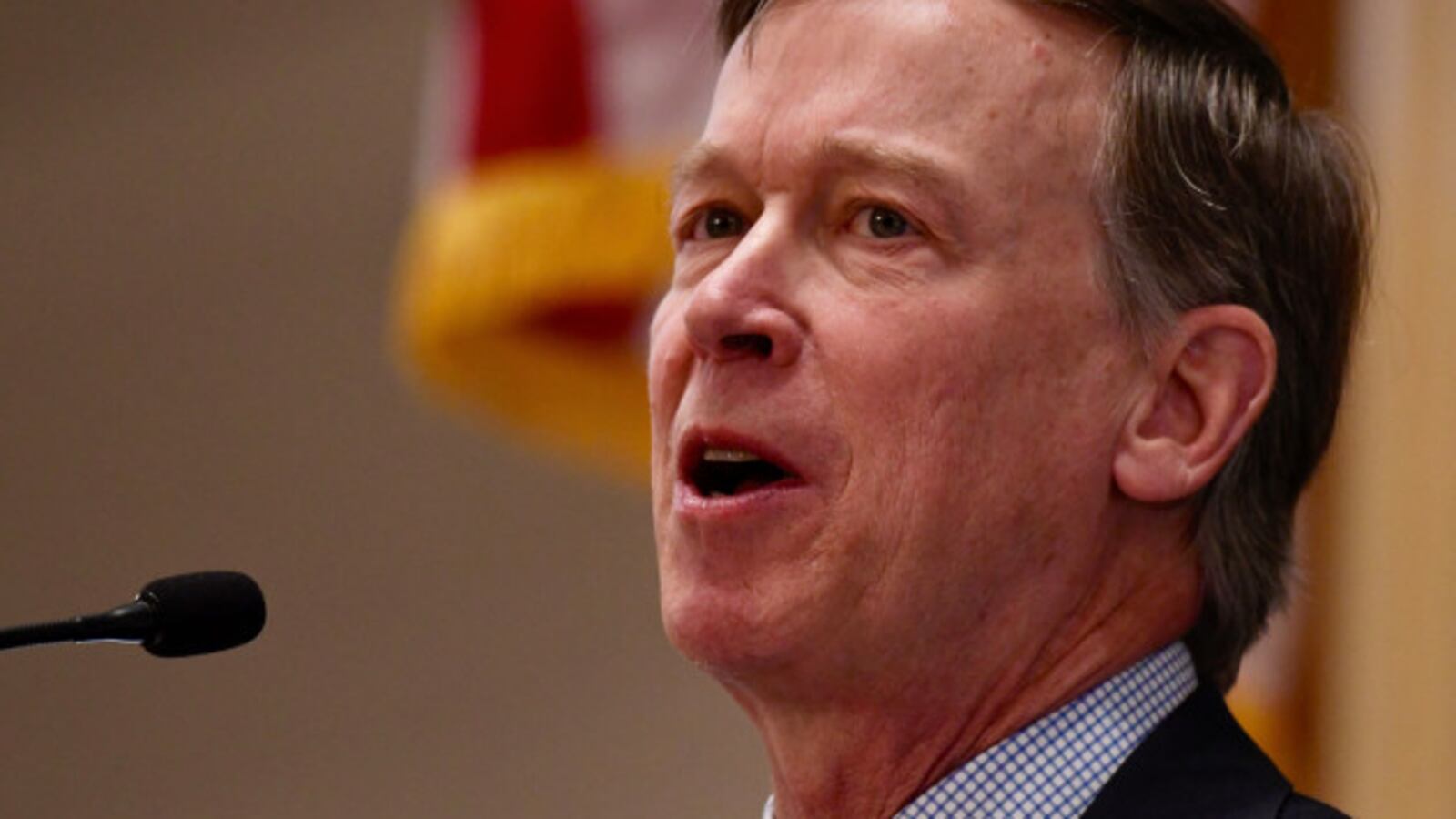Gov. John Hickenlooper called on leaders from both parties Thursday to find a “common sense” plan to fund the state’s schools.
Hickenlooper, in his second-to-last State of the State address, described it as the only way the state can close the gap between its low-performing students and its high achievers.
“Closing the gap means giving students a solid foundation for success at every step of their education, as they move from preschool through K-12, toward college, certificate, or apprenticeship and onto a good job,” Hickenlooper said. “Part of that work includes a common sense plan to fund education.”
Although Hickenlooper did not describe possible solutions, his call for lawmakers to take on the issue is significant, lawmakers and advocates said.
“Calling it out, on his part, is raising the issue and challenge,” said Rep. Millie Hamner, a Democrat from Frisco and a member of the state’s Joint Budget Committee, which writes the state budget.
Hamner said she especially appreciated Hickenlooper spotlighting that the share of local property taxes that fund public schools is expected to shrink by about $170 million this year.
The amendment, approved by voters in 1982, maintains a constant ratio between the residential property taxes and from business property taxes. When revenue from personal property taxes surpasses a threshold, the state must reduced the rate at which property is taxed to reset the ratio. That’s expected to happen this year.
School funding advocates received Hickenlooper’s speech tempered optimism.
“We’re gratified when the importance of adequately funding education is elevated,” said Lisa Weil, executive director of Great Education Colorado, a nonprofit that advocates for better school funding. “Now we need bold and visionary action by our elected leaders.”
Before the session started, Weil’s group called on lawmakers and the governor to send more money to schools. Great Education Colorado is also leading a diverse group of education officials and other civic leaders considering a push to get a school funding measure on the 2018 ballot.
Following Hickenlooper’s speech, Senate President Kevin Grantham, a Canon City Republican, said he agreed that the Gallagher Amendment was damaging the way the state funds schools.
But Grantham was skeptical about asking voters to reset a statewide tax on personal property — an idea being explored by a bipartisan group of lawmakers.
“That’s going to be a lightning rod,” he said. “I don’t know if it will happen this year, or next year, or at all to be honest.”
How to fund the state’s public schools has been a long-running debate at the legislature and intensified after the Great Recession drove millions of dollars in cuts. A complex combination of constitutional amendments, such as Gallagher, and statutes largely has tied lawmakers’ hands in changing the system.
Changing the way the state funds its schools has been broached in the past, but changes have not materialized.
Speaker of the House Crisanta Duran, a Denver Democrat, said Wednesday her party is interested in exploring all options to increase school funding.
Both Duran and Hickenlooper have asked Republicans to rethink their position on changing how the state classifies state tax revenue from hospital visits. That, in turn, could allow the state to avoid constitutionally mandated taxpayer refunds, providing for more spending flexibility.
But like last year, Republicans are not interested.
“If they want to keep beating a dead horse, they’re welcome to,” Grantham said.
Grantham said he hopes next year’s budget can stave off increasing the state’s funding shortfall for schools. He praised his colleagues’ work in keeping cuts away from schools the last two years.
“We’re looking at every single thing that is considered a core function of this government,” he said, adding that he believes lawmakers have lost sight of what taxpayers want. “I think the voters were clear with Amendment 23. But after 2009, our state priorities have gone down a different path.”
Amendment 23, passed in 2000, requires the state to fund its schools to keep up with population growth and inflation.
Hickenlooper in his speech also called on the state to find away to provide high speed broadband to all the state’s schools.
“Tonight, somewhere in one of these (rural) communities, a high school student will sit in a parked car outside her town library,” he said. “She’ll huddle over her laptop, face glowing from the screen as she tries to finish her paper, because it’s the only place she can get wifi. That isn’t right.”


